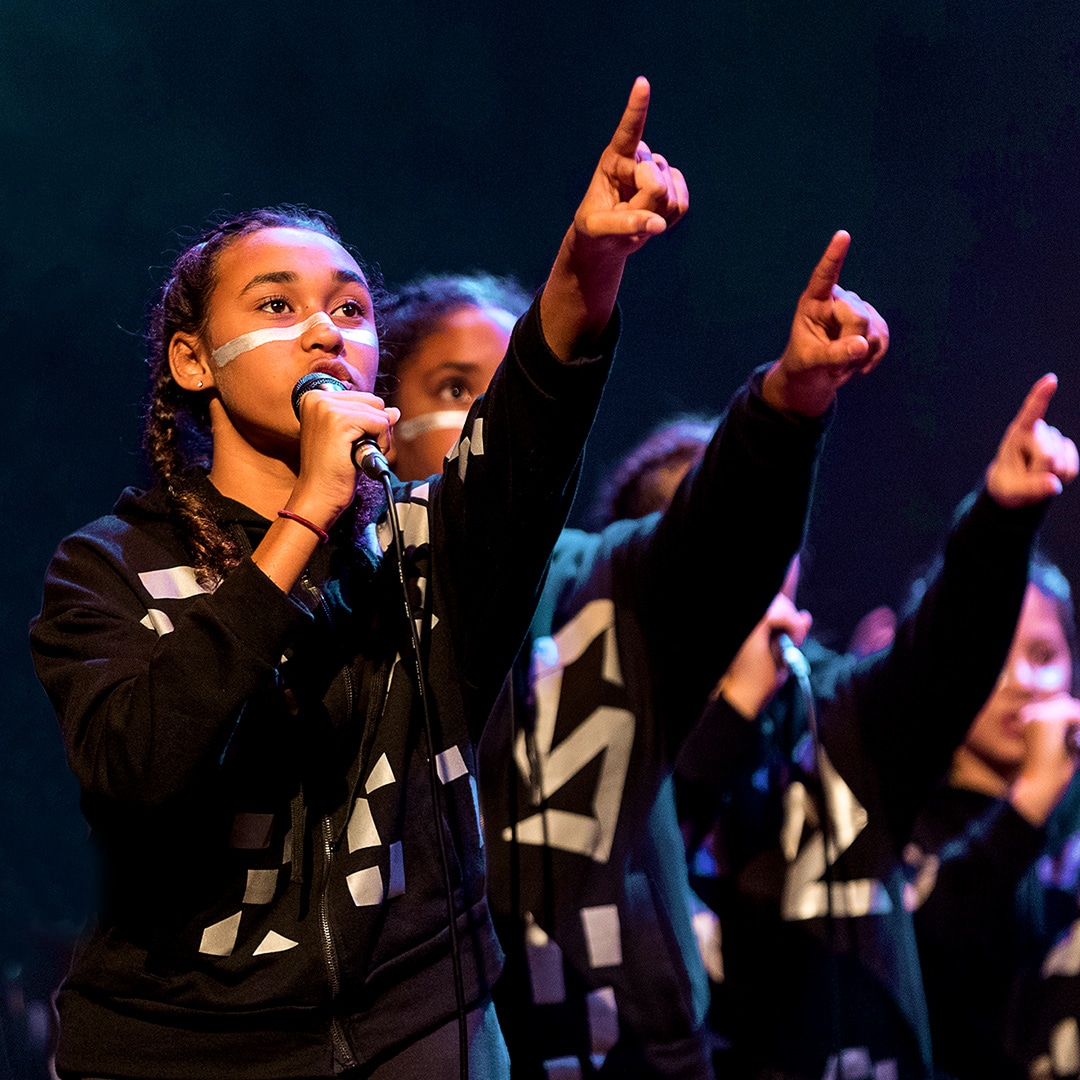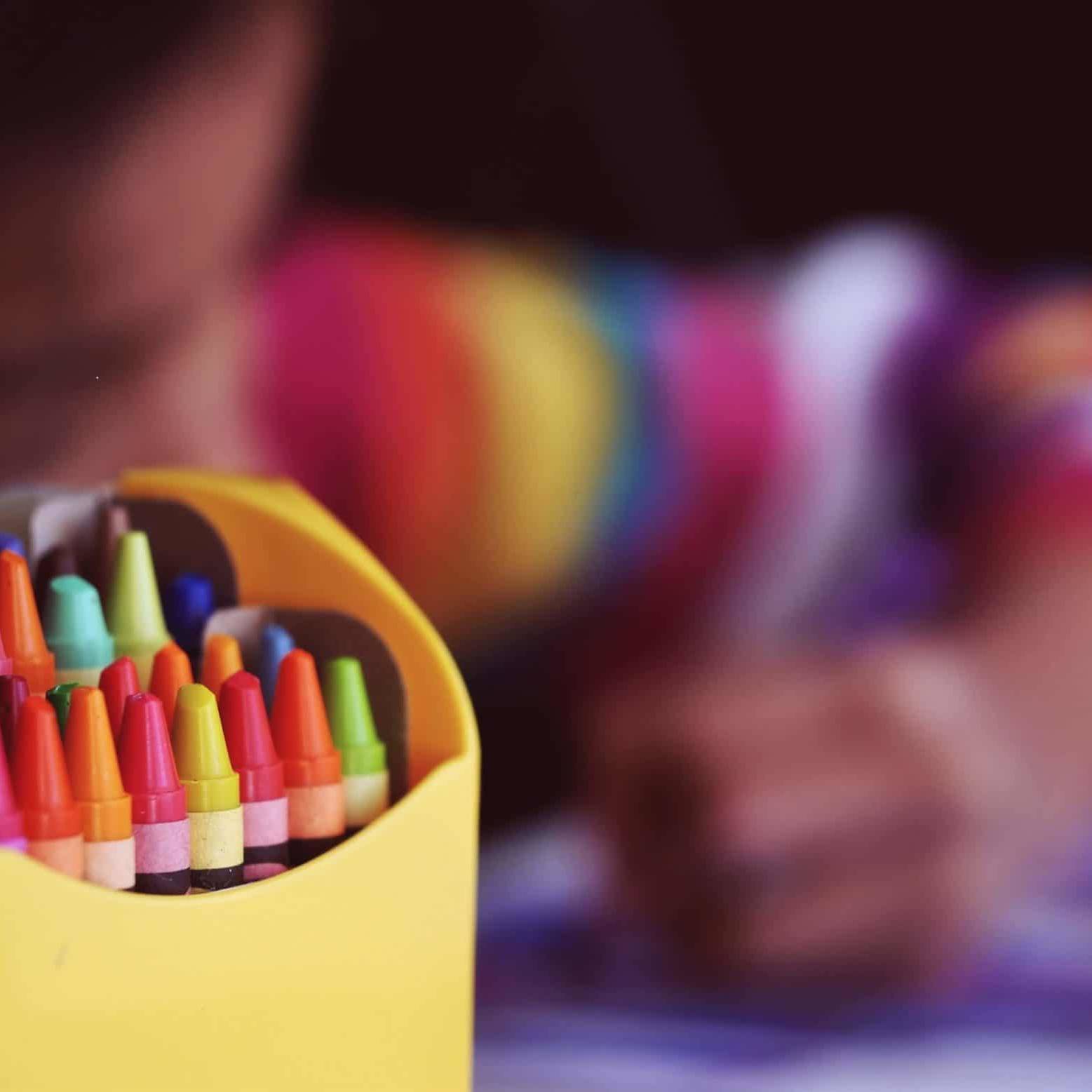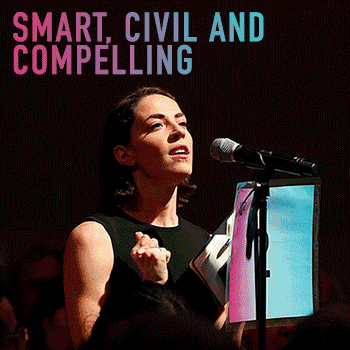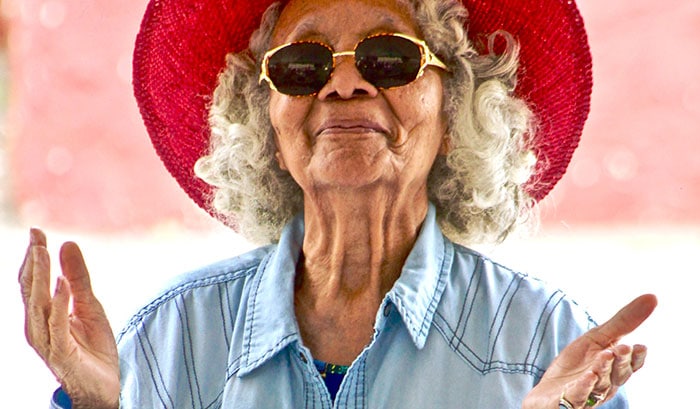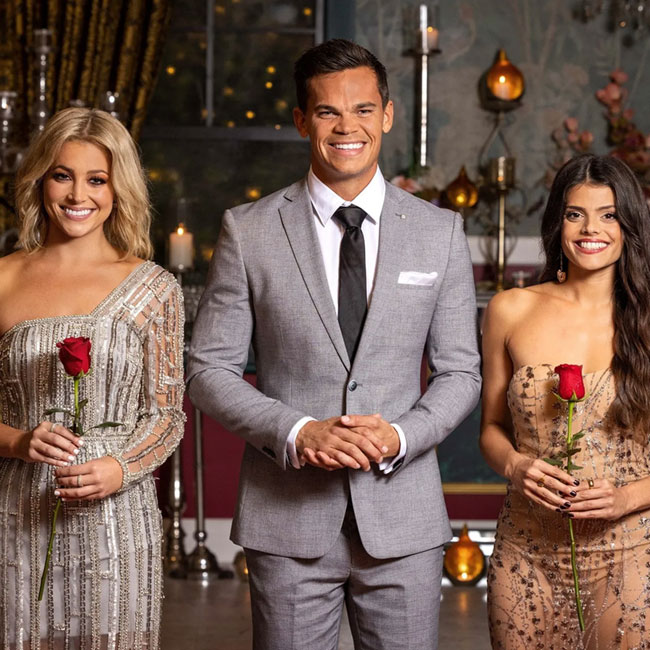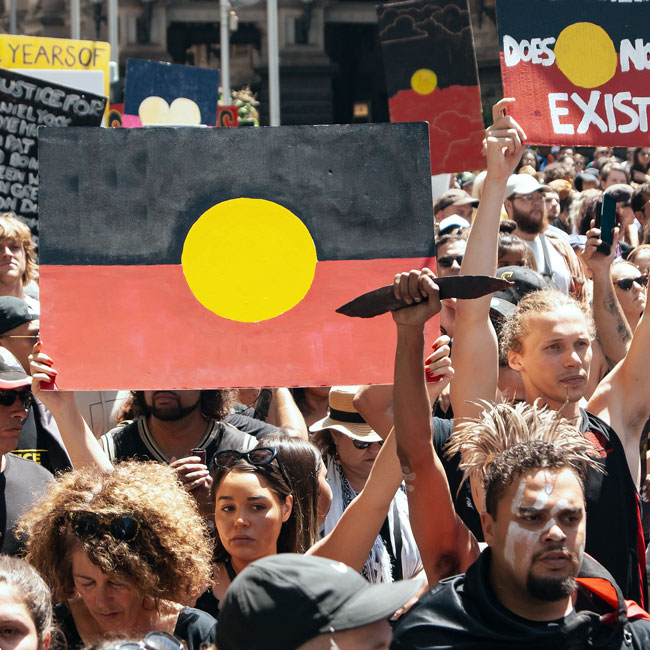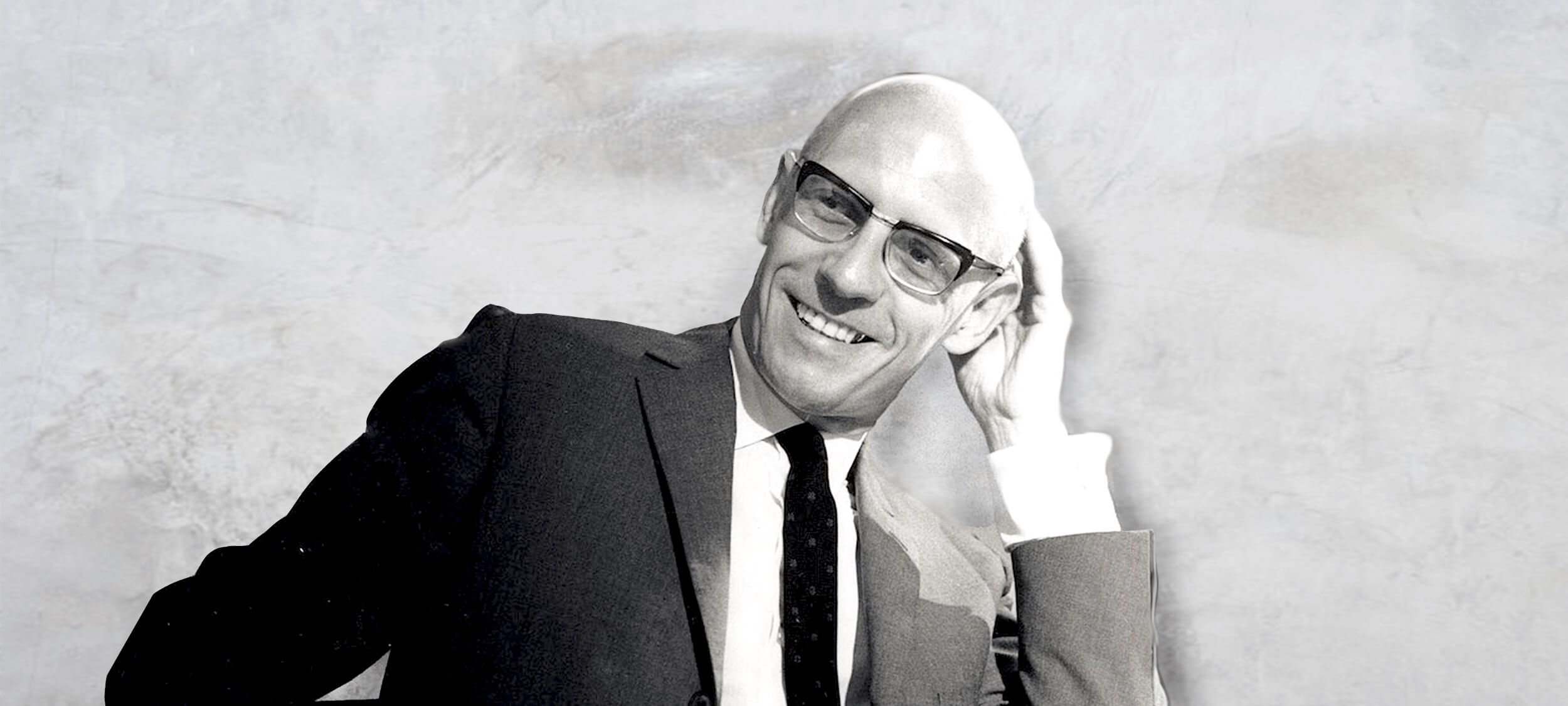Big Thinkers: Laozi and Zhuangzi
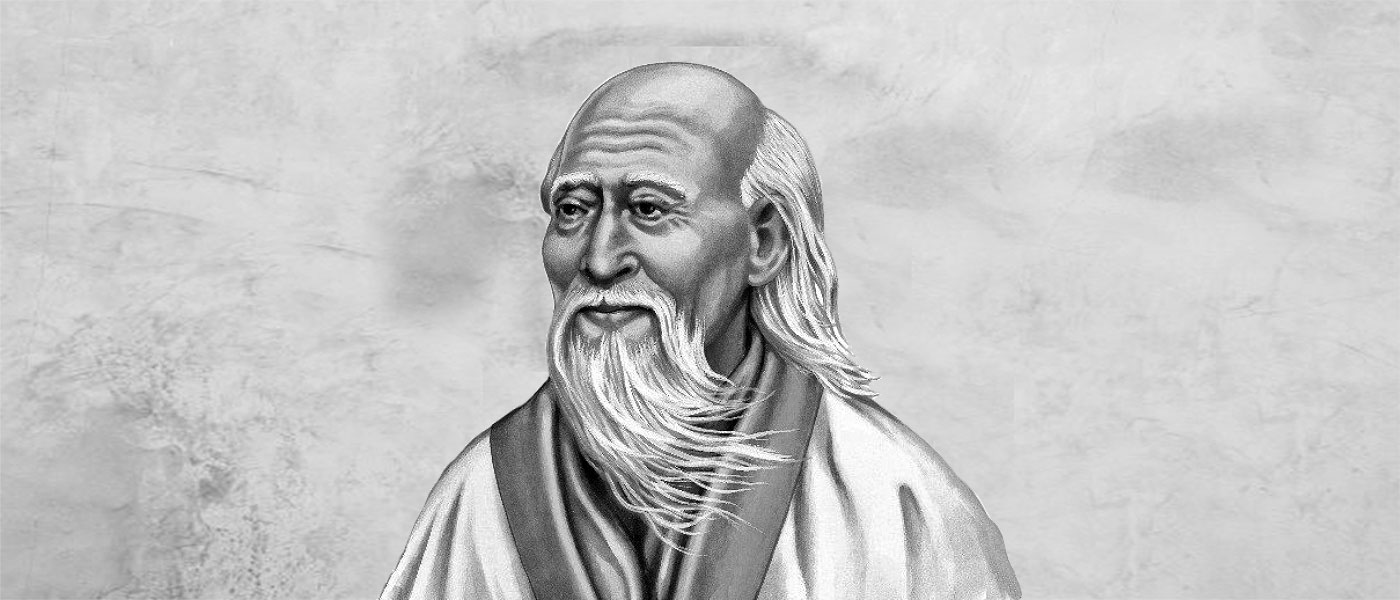
Daoism is one of the three pillars of Chinese philosophy, and its founders Laozi and Zhuangzi implore us to unshackle ourselves from the constraints of the way we think and live a spontaneous, authentic life.
When many of us think of “philosophy”, we conjure images of toga-wearing Greeks debating in the agora in Athens. Or Renaissance thinkers like René Descartes contemplating consciousness in his armchair. Or perhaps Simone de Beauvoir and Jean-Paul Sartre smoking Gauloises in the cafés of post-war Paris.
But there is another tradition of philosophy that comes out of China that is just as deep and diverse, with just as long a history. It has considered many of the same questions as Western philosophy, such as the nature of reality, the possibility of knowledge and how to live a good life, but has sought to answer these questions in very different ways to many Western thinkers.
There are generally considered to be three pillars to Chinese philosophy: Confucianism, Daoism and Buddhism. All three have mixed and intermingled over centuries to deeply influence Chinese culture and thinking to this day.
Daoist spontaneity and playfulness
In many ways, Daoism was a reaction against Confucianist thinking, which has strict rules on how we are supposed to live our lives, on the social roles and responsibilities we are supposed to take on, and has a strong emphasis on order and ritual. Daoism was a total rejection of these things, and is much more about living spontaneously, intuitively and experiencing a direct connection with nature and existence.
Daoism has two great masters, Laozi, who wrote the Daodejing, and Zhuangzi, who wrote the eponymous Zhuangzi. Both of these thinkers are believed to have lived between the 6th and 4th centuries BCE, but while there are many stories about their lives, it’s difficult to separate fact from legend.
Both the Daodejing and the Zhuangzi are very playful texts, quite unlike most Western philosophy. Instead of outlining abstract theories supported by dry logical arguments, both were written in the form of sayings or stories that are often irreverent or absurd. They encourage the reader to reflect on life in a creative rather than analytic way.
For example, there’s a passage where Zhuangzi wakes up after dreaming he was a butterfly. But then he can’t be certain that he’s not right now a butterfly dreaming he’s a man. A similar sentiment was expressed by René Descartes, although far less poetically.
The three daos
The term “dao” itself is often translated to mean “way” or “path,” but it’s not an easy concept to pin down, which is by design. In a sense, the dao is like the natural order of the world, and following the dao is to be living in accordance with nature.
There are typically considered to be three daos:
- The human dao: the world of words, judgements and society
- The natural dao: the natural processes and regularities of the world, like the laws of nature
- The grand dao: the sum total of all things in the universe
These have a complex relationship, and Laozi wanted to make sure we don’t make the mistake of thinking the human dao is the only dao there is. For while we automatically use words and concepts to carve the world up into discrete things, nature itself is continuous. And while we can be judgemental, nature itself is free from judgement.
A central tenet of Daoism is embracing these opposite and contradictory states simultaneously. We can see some if this reflected in the yin/yang symbol, taijitu. It is at once a unitary thing, but it’s also composed of two opposites: the yin and the yang. This can be interpreted as representing the divisions that emerge within human thought – the separation of the one natural world into light/dark, hard/soft, active/passive, good/bad – but also shows how these things are complementary and all part of a greater whole.
There are even some Western thinkers who have wholeheartedly embraced this notion of complementarity. Notably, the Danish quantum physicist Niels Bohr argued that the seemingly contradictory quantum and classical accounts of reality weren’t in opposition but were complementary. He even chose the taijitu symbol for his coat of arms when he was knighted by the King of Denmark.
Many of the lines in the Daodejing and Zhuangzi challenge us to unshackle ourselves from the human dao and to contemplate the natural and the grand dao, and to realise that they’re all really one and the same.
For example, one translation of the opening line of the Daodejing is “the dao that can be spoken is not the true dao.” (In Chinese, it’s even more obtuse, being: “the dao that you can dao is not the true dao”.) If that’s so, then why speak or write this at all? And yet this realisation could only have come from writing this in the first place. Thus does a core paradox of daoism enter our minds to do its noble work.
Just be
Daoism teaches us to practice emptiness and non-action, which sits in stark contrast to many philosophical traditions that teach us to fill our minds with knowledge and to act with intent. Daoism tells us that things in the world just are, we are also in the world and just are, but we have this irritating habit of forgetting to just be and instead think and reflect on what we are, and then are guided by what we think we are instead of just being what we really are. It’s that simple.
“Therefore the sage dwells in the midst of non-action and practices the wordless teaching” – Laozi
Laozi and Zhuangzi are often cheeky, irreverent, playful and inscrutable. In a way, they are urging us to encounter nature directly, not mediated by words, and definitely not by rituals and rigid social roles.
This is not an easy thing to do, which is why the text encourages – or nags – us to snap us out of our complacent reliance on abstract concepts rather than experience concrete reality.
Dr Tim Dean is a philosopher, writer, honorary associate with the University of Sydney, editor of the Universal Commons, and faculty with The School of Life.
Ethics in your inbox.
Get the latest inspiration, intelligence, events & more.
By signing up you agree to our privacy policy
You might be interested in…
Opinion + Analysis
Climate + Environment, Politics + Human Rights, Relationships, Society + Culture
The youth are rising. Will we listen?
Opinion + Analysis
Politics + Human Rights, Relationships
Free markets must beware creeping breakdown in legitimacy
Opinion + Analysis
Relationships
A guide to ethical gift giving (without giving to charity)
Opinion + Analysis
Relationships
Do we have to choose between being a good parent and good at our job?
BY Dr Tim Dean
Dr Tim Dean is Philosopher in Residence at The Ethics Centre and author of How We Became Human: And Why We Need to Change.
We need to talk about ageism

There’s growing evidence of change afoot in attitudes toward age, ageing and older people and it’s about time.
After decades of pondering – and usually catastrophising – about the impact on society of the dreaded ‘ageing population’, we may just be reaching a tipping point.
This term, tipping point, is described by Malcolm Gladwell in his bestselling book of that title as the “magic moment when an idea, trend, or social behaviour crosses a threshold, tips, and spreads like wildfire”.
US ageism activist, Ashton Applewhite, suggests we might be there. She is the author of This Chair Rocks – A Manifesto Against Ageism and will be visiting Australia in November this year.
“The Guardian has just appointed a Longevity Reporter, for example,” she said, “who interviewed me at length and kept asking whether the culture was at a turning point”.

Applewhite argues most people are looking to cash in on the ‘longevity economy’ by selling products and services to a generation that controls most of the disposable income in the developed world.
“But there are also a zillion conversations going on about intergenerational initiatives, older women coming into our power, teaching medical students about age bias, incorporating age into diversity and inclusion training, fetishising of the old-and-fashionable, and many more domains.”
This is happening because people everywhere are waking up to the fact that no domain – from healthcare, to entertainment, to business, technology, the built environment – will be unaltered by the permanent, global and unprecedented phenomenon of population ageing. It carries fascinating social, economic, and ethical implications.
The big lag
One of the biggest challenges of population ageing stems from the fact that the roles and institutions around us – with all their underpinning assumptions, attitudes and behaviours – were created when lives were shorter and very different. And they haven’t had time to properly catch up.
A coalition of diverse Australian organisations and individuals have committed to address this lag with EveryAGE Counts, a long term advocacy campaign to change these destructive, outdated, yet deeply engrained attitudes and assumptions about ageing and older people. The coalition includes the Australian Human Rights Commission, COTA Australia, National Seniors, the Federation of Ethnic Communities Councils, and the Regional Australia Institute.
“Research shows that many of society’s views about older people – the views and assumptions that drive all the negativity around ageing – are based on outdated myths and stereotypes that simply do not apply in this era of prolonged good health and increased longevity,” says EveryAGE Counts campaign co-chair, Robert Tickner.
“People are being prevented from living the productive, healthy, engaged lives they want to live as they get older because our society tends to devalue and marginalise older people,” he says.
“And these negative stereotypes are so pervasive and deeply ingrained – in our language, in representations in the media and in popular culture – that many of us have bought into them without question. So we actually contribute to our own marginalisation as we grow older. It’s why ageism is often described as prejudice and discrimination against your future self!”
The EveryAGE Counts campaign aims to end ageism. It is working to make it as unacceptable as other forms of prejudice and discrimination in our community.
“Terms like sexism, racism and homophobia are well understood and have become embedded in our societal norms. Ageism is not. Racist, sexist and homophobic behaviours are easy to spot, ageist behaviours, less so,” said Tickner.
Ageism is a bit different to other ‘isms’. Racist or sexist attitudes and behaviours, for example, are usually based on prejudices and assumptions about a person or a group that is ‘different’ to us – a different race, a different gender.
“The great irony is that ageism can affect us all, regardless of race, gender, religion, size, shape or our favourite music! It is discrimination against yourself, albeit your future self, for each and every one of us… should we be fortunate to live beyond our youth,” Tickner said.
There have been some great efforts in the last couple of decades, in Australia and internationally, to raise consciousness levels about ageism and its many negative impacts. Applewhite is trying to do this by urging us to swap ‘women’ for ‘older people’ when thinking about some of our attitudes and assumptions. Would you use a sweeping generalisation for an entire gender? Do you think ‘older people’ who may span 30 to 50 years in age, are all the same?
Many are comfortable calling out racism, sexism or homophobia. Yet jokes about older people are less likely to attract reprimand. I encourage you to check out the EveryAGE Counts campaign, take the ‘Am I Ageist?’ quiz and sign our campaign pledge:
I/we stand for a world without ageism where all people of all ages are valued and respected and their contributions are acknowledged. I/we commit to speak out and take action to ensure older people can participate on equal terms with others in all aspects of life.
MOST POPULAR
ArticleBeing Human
Putting the ‘identity’ into identity politics
ArticleHEALTH + WELLBEING
Parent planning – we should be allowed to choose our children’s sex
Article
Ethics Explainer: Respect
ArticleBeing Human
Praying for Paris doesn’t make you racist
Are we idolising youth? Recommended reads
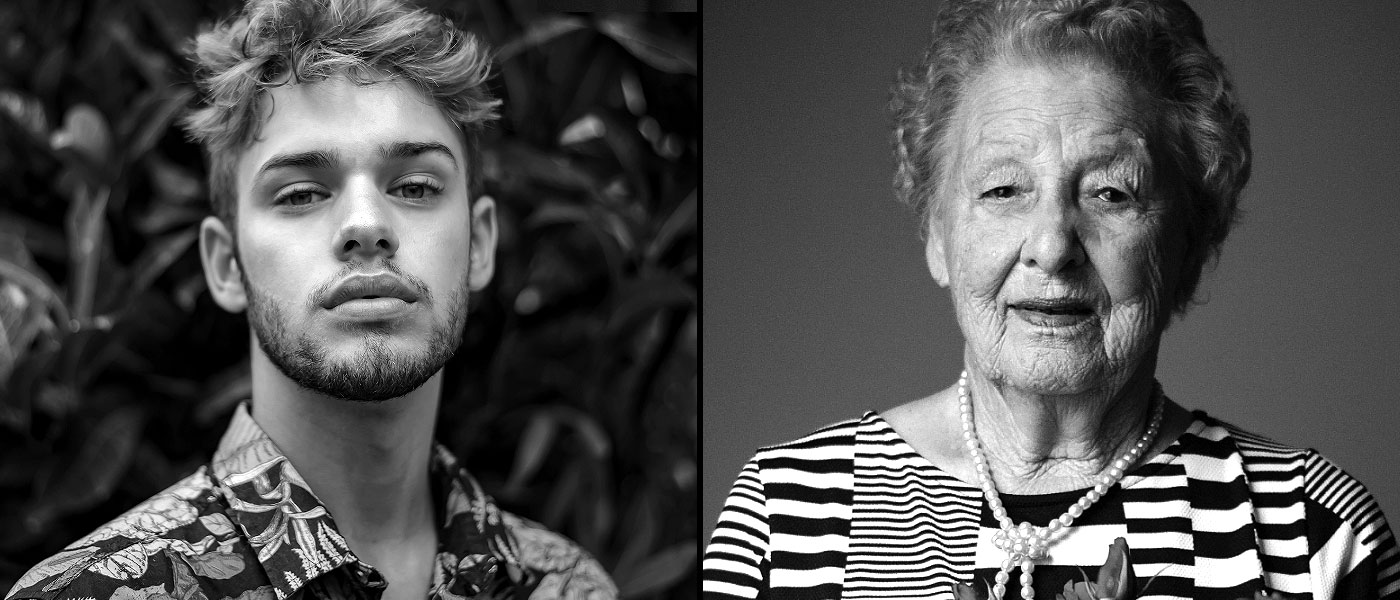
Are we idolising youth? Recommended reads
Opinion + AnalysisClimate + EnvironmentPolitics + Human Rights
BY Kym Middleton 6 JUN 2019
IQ2 Australia debates whether we need to ‘Stop Idolising Youth’ on 12 June.
Advertisers market to youth despite boomers having the strongest buying power. Unlike professions such as law and medicine, the creative industries prefer ‘digital natives’ over experience.
Young actors play mature aged characters. Yet openly teasing the young for being entitled and lazy is a popular social sport. Are the ageism insults flung both ways?
1. Why do marketers hate old people?
Ad Contrarian, Bob Hoffman / 2 December 2013
An oldie but a goodie. Bob Hoffman is the entertainingly acerbic critic of marketing and author of books like Laughing@Advertising. In this blog post he aims a crossbow at the seemingly senseless predilection of advertisers for using youth to market their products when older generations have more money and buy more stuff.
“Almost everyone you see in a car commercial is between the ages of 18 and 24,” he says. “And yet, people 75 to dead buy five times as many new cars as people 18 to 24.” He makes a solid argument.
2. It’s time to stop kvetching about ‘disengaged’ millennials
Ben Law, The Sydney Morning Herald / 27 October 2017
Ben Law asks, “Aren’t adults the ones who deserve the contempt of young people?” He argues it is older generations with influence and power who are not addressing things as big as the non-age-discriminatory climate crisis. He also shares some anecdotes about politically engaged and polite public transport riding kids.
You might regard a couple of the jokes in this piece leaning toward ageist quips but Law is also making them at his own expense. He points out millennials – the generation to which he belongs and the usual target for jokes about entitled youth – are nearing middle age.
3. Let’s end ageism
Ashton Applewhite, TED Talk / April 2017
There’s something very likeable about Ashton Applewhite – beyond her endearing name. This is even though she opens her TEDTalk with the confronting fact the one thing we all have in common is we’re always getting older. Sure, we’re not all lucky enough to get old, but we constantly age.
In pointing to this shared aspect of humanity, Applewhite makes the case against ageism. This typically TED nugget of feel good inspiration is great for every age. And if you’re anywhere between late 20s and early 70s, you’ll love the happiness bell curve. In a nutshell: it gets better!
4. Instagram’s most popular nan
Baddiewinkle, Instagram/ Helen Van Winkle
Her tagline is “stealing ur man since 1928”. Get lost in a delightful scroll through fun, colourful images from a social media personality who does not give a flying fajita for “age appropriate” dressing or demeanours. Baddie Winkle was born Helen Ruth Elam Van Winkle in Kentucky over 90 years ago.
Her internet stardom began age 85 when her great granddaughter Kennedy Lewis posted a photo of her in cut-off jeans and a tie-dye tee. Now Winkle’s granddaughter Dawn Lewis manages her profile and bookings. Her 3.8 million followers show us audiences aren’t only interested young social media influencers. “They want to be me when they get older,” Winkle says. Damn right we do.
Event info
IQ2 Australia makes public debate smart, civil and fun. On 12 June two teams will argue for and against the statement, ‘Stop Idolising Youth’. Ad writer Jane Caro and mature aged model Fred Douglas take on TV writer Ben Jenkins and author Nayuka Gorrie. Tickets here.
MOST POPULAR
ArticleBeing Human
Putting the ‘identity’ into identity politics
ArticleHEALTH + WELLBEING
Parent planning – we should be allowed to choose our children’s sex
Article
Ethics Explainer: Respect
ArticleBeing Human
Praying for Paris doesn’t make you racist
BY Kym Middleton
Former Head of Editorial & Events at TEC, Kym Middleton is a freelance writer, artistic producer, and multi award winning journalist with a background in long form TV, breaking news and digital documentary. Twitter @kymmidd
The dark side of the Australian workplace

The dark side of the Australian workplace
Opinion + AnalysisBusiness + Leadership
BY The Ethics Centre 5 JUN 2019
The founder of a law firm recently explained long working days under high pressure at his firm, saying: “People come here with the knowledge and expectation that they’re going to have to work hard”.
He could have been speaking for any number of employers in high-stress industries.
As young graduates leave university to work in top-tier law firms, in hospitals, merchant banks and professional services, they are already well acquainted with hard work and competition. They have strived to become the best and brightest through many years of education, often polishing their resumes with extra-curricular achievements in sport, music and volunteer work – all the while supporting themselves with part-time jobs.
These young people know what it is like to “burn the candle at both ends”, to run themselves ragged getting ahead of the competition so they can get one of the prized entry-level jobs that may lead to continued success.
They expect to be worked hard. They probably don’t expect to be worked to death.
Two leading law firms have recently been investigated over complaints about “extreme working conditions”, where one solicitor warned that it had reached a “point someone will die or have some other physical or mental health episode’’.
An unprecedented move by WorkSafe
In one well-publicised example, WorkSafe Victoria had launched an investigation into King & Wood Mallesons in Melbourne after a similar complaint regarding overwork and exhaustion, particularly during the Banking and Finance Royal Commission.
King & Wood Mallesons chief executive partner, Berkeley Cox, says the legal industry is paying much closer attention to the issue of work stress.
“We have learnt so much over the past year and recognise that there is a lot more that law firms can and should be doing to improve the everyday work experience for individuals and the systematic issues at an organisational and industry-wide level,” he says.
“While we have much more to do on our journey, we want our workplace to be one where every individual has the opportunity to flourish.”
WorkSafe’s action is regarded as unprecedented in the legal industry and some pundits have nominated it as a “death knell” for the concept of the “billable hour” – whereby firms charge clients for each hour their lawyers work.
The billable hours system means that workers are incentivised to work longer, rather than smarter.
Certainly, the statistics around mental health in the legal profession are alarming.
Around 50 per cent of law students, 33 per cent of solicitors and 20 per cent of barristers report they have experienced depression. Further, 11 per cent of lawyers contemplate suicide each month, according to research published on the website of legal mental health charity, Minds Count (formerly the Tristan Jepson Memorial Foundation).
A punishing rite of passage
Investigating the causes of this crisis and exploring possible solutions usually leads back to an industry culture of being always-available to clients, unreasonable demands for fast turnarounds and the “billable hour”. There is also a long-held belief in the professions that young people will work punishing hours as a “rite of passage” that will pay off in the long run.
In the legal industry, Royal Commissions tend to amp up the pressure, with work going on in 24-hour cycles in 15-hour shifts, seven days per week, in an environment that is intolerant of mistakes or human frailties.
As it is, lawyers work longer overtime than professionals in any other field in Australia, according to a position paper by The Legal Forecast, a not-for-profit group that provides support for students and early-career lawyers.
Under discussion at a recent event, hosted by The Legal Forecast, was the exacting timetabling of the Hayne Royal Commission and the impact it had on lawyers, particularly junior staff.
DLA Piper Australia co-managing partner and Minds Count board member, Melinda Upton, asked: “Was it worth the sacrifice when you look at statistics on people committing suicide and entering depression? Did it have to be done that quickly?”.
This point was picked up by Scarlet Reid, a partner at McCullough Robertson Lawyers, who said she worked on the Hayne Royal Commission and is now working on this year’s Aged Care Royal Commission.
Reid said the Aged Care commission was proceeding at a “much slower pace” and questioned whether the banking Royal Commission really had to be completed in one year.
“Politics drives that as well,” she said. “We could slow down.”
She said many of the organisations involved in giving evidence to the Aged Care Royal Commission were not-for-profits that did not have the funds to pay for large legal teams – a factor that puts a brake on the pace.
Need to slow down
Partner at legal recruitment firm ECP Legal, Justin Whealing, said a senior banking corporate counsel told him he wished the law firms and their clients had teamed up to ask the commissioner for more time.
“I think the legal profession could do that better, in terms of presenting a united front to speak in one voice about how meaningful changes can be made for the betterment of the profession. Clients would get better advice as well and it would be more sustainable for the people in it,” Whealing said. He also advocated having an industry-wide standard, setting out conditions such as maximum work hours and mandatory breaks and using targets.
Reid acknowledged the bind that law firms find themselves in: “It’s very difficult when you’ve got clients needing to meet deadlines, getting into witness boxes. And, you know, it’s a balance”.
Some firms are using contract lawyers to help manage workload over peak times, says the head of Innovation and Project Delivery at Pinsent Masons, Alison Laird. Even without being involved in a Royal Commission, there are huge deadlines that must be met. “So we ramp up the team, and then we ramp them down again,” she says.
Getting rid of ‘billable hours’
Laird said things will not improve until law firms change the way they remunerate their people and get rid of the “billable hour” system, which drives lawyers to bill a certain number of hours per year to the detriment of their mental wellbeing. “It is the one thing that impacts innovation more than anything else,” she says.
At least one top tier firm, Corrs Chambers Westgarth, is dumping the billable hour concept (while adding an extra week of annual leave) and replacing them with annual billing targets, which allow for peaks and troughs of client-billed activity.
However, Melinda Upton warned that replacing the billable hours system cannot happen without the support of clients, who are likely to push back on any change. Member of The Legal Forecast NSW, Edwin Montoya Zorrilla, supports a move away from billable hours and offers more remedies: the automation of various legal tasks and integrating long-term thinking into practice management and recruitment.
“This discussion also includes more specific strategies such as optimising systems of delegation and work sharing, better communication with clients, and using technology-assisted project management tools,” he writes in an article for Westlaw.
“Yet, none of these strategies, however innovative, take effect overnight, and there remains a tendency to return to traditional means of meeting the bottom line.”
Encourage safe work
Upton said it is a responsibility of law firm partners and management to educate the partners about staff wellbeing and “to call it out when they don’t come to the table on it”.
They can also highlight examples where enforcing or encouraging safe work practices has worked well.
“Usually it means your attrition rates have improved, you’ve got a much happier team, you’ve got succession and talent mapping and progression going on, you get good client feedback. And clients really don’t care where you work.”
Reid says working shorter hours may mean that law partners have to accept they will make less money.
When partners discuss remuneration structures at a firm-wide level, they need to be talking about encouraging the sharing of work between teams, the use of contract lawyers and other ways to create a sustainable work environment.
“There is an element of almost a corporate greed associated with the driving of long hours … unless you’re going to change the remuneration structure, then it’s going to be hard to drive behaviour,” she says.
This article was originally written for The Ethics Alliance. The Alliance is a community of organisations sharing insights and learning together, to find a better way of doing business.

This article was originally written for The Ethics Alliance. Find out more about this corporate membership program. Already a member? Log in to the membership portal for more content and tools here.
Ethics in your inbox.
Get the latest inspiration, intelligence, events & more.
By signing up you agree to our privacy policy
You might be interested in…
Opinion + Analysis
Business + Leadership, Relationships
The pivot: Mopping up after a boss from hell
Opinion + Analysis
Business + Leadership
Power play: How the big guys are making you wait for your money
Opinion + Analysis
Business + Leadership, Relationships
How the Canva crew learned to love feedback
Opinion + Analysis
Science + Technology, Business + Leadership, Society + Culture
AI might pose a risk to humanity, but it could also transform it
BY The Ethics Centre
The Ethics Centre is a not-for-profit organisation developing innovative programs, services and experiences, designed to bring ethics to the centre of professional and personal life.
Why the future is workless

Predictions for the future of work are grim – depending on your point of view. Many of our jobs are being automated out of existence, but it looks like we’ll have much more free time.
Writer and Doctor of Philosophy, Tim Dunlop, says people and governments are going to have to rethink how we support ourselves when there isn’t enough paid work to go around.
Dunlop does not ascribe to the view often put forward by economists that technology will generate enough jobs to replace the ones that are destroyed by robotics and artificial intelligence.
“I don’t know if that’s necessarily true in the medium term… I think there’s going to be a really nasty transition for more than a generation,” says Dunlop, the author of Why the Future is Workless and The Future of Everything.
“We are going through this huge period of transition at the moment and we don’t really know where it’s heading. We’re at the bottom of the curve, in terms of what [new technologies] are going to be capable of.”
Dunlop says framing question around the future of work as “will a robot take my job?”, is reductive. Instead, we should be looking at what sort of job will be available and what the conditions will be for the jobs that are offered.
“If we are working less hours, or there is less work, or the economy just needs fewer people, and then we don’t have a technology problem, we’ve got a distribution problem,” he says.
The “hollowing out” of the job market means that middle-skilled jobs are disappearing because they can be automated. Trying to “upskill” people who have been displaced, or redirect them into jobs that need a human touch (such as caring jobs) is not an answer for everyone.
“Not everybody can have a high-skill, high-paid sort of job. You need those middle-level jobs as well. And if you don’t have those, then society’s got a problem.” he says.
Dunlop says one way of addressing the issue is a universal basic income: where everybody gets a standard payment to cover their basic needs.
“I don’t think you can rely on wages to distribute wealth in an equitable way, in the way that might have been in the recent past,” he says.
The idea of a Universal Basic Income has been around since the 16th Century and is unconditional – not based on household income.
In Australia, the single-person pension (now just over $24,000 per annum) might be seen as an appropriate level of payment, according to Dunlop, in an article written for the Inside Story website.
“It is basic also in the sense that it provides an income floor below which no one can fall. The payment is unconditional in that no one has to fulfil any obligations in order to receive it, and even if you earn other income you’re still eligible. That makes it universal, equally available to the poorest member of society as it is to the start-up billionaire,” he writes.
Much of the discomfort often voiced about such a scheme centres around the idea that people are being paid to “do nothing” and that it removes the incentive to work.
However, trials show that in developing countries, people use the money to improve their situation, starting businesses, sending children to school and avoiding prostitution. In Europe and Canada, people receiving the payment tend to stay in their jobs and entrepreneurship increases.
Trials of the Universal Basic Income are now taking place globally – from Switzerland to Canada to Kenya – but most are limited to the unemployed or financially needy, rather than being universal.
Dunlop says that, rather than worrying about whether people “deserve” the payment, we should accept the concept of “shared citizenship”. Whether we do paid work, or not, we are all contributing to the overall wealth of society.
Inequality comes when wealth gets divided up by those who do work that is paid and those who own the means of production. With a Universal Basic Income, everybody’s contribution is valued and people get a benefit from the roles they play in the formal and informal economy, he says.
So what will we be doing in the future if we are not doing paid work? Dunlop says we will still have our hobbies, passions and families – and we can derive just as much (if not more) meaning from those things as we do from our jobs.
We are already seeing evidence of efforts to reduce the hours of work, with companies trying four-day work weeks (paid for five), the Swedish Government trialling a six-hour workday, a French law banning work emails after hours.
Dunlop says a “work ethic” culture makes it hard for these reforms to succeed and unions tend to see a push for reduced hours as a “trojan horse” threat of increasing casualisation and insecure work.
“That’s where things like the French rule about emails probably comes in handy. It sets some parameters around what society sees as acceptable and maybe it needs some government leadership in this area.”

This article was originally written for The Ethics Alliance. Find out more about this corporate membership program. Already a member? Log in to the membership portal for more content and tools here.
Ethics in your inbox.
Get the latest inspiration, intelligence, events & more.
By signing up you agree to our privacy policy
You might be interested in…
Opinion + Analysis
Business + Leadership, Health + Wellbeing, Relationships
Ending workplace bullying demands courage
Opinion + Analysis
Business + Leadership
The invisible middle: why middle managers aren’t represented
Opinion + Analysis
Business + Leadership
Ethics of making money from JobKeeper
Opinion + Analysis
Society + Culture, Business + Leadership, Health + Wellbeing
Make an impact, or earn money? The ethics of the graduate job
BY The Ethics Centre
The Ethics Centre is a not-for-profit organisation developing innovative programs, services and experiences, designed to bring ethics to the centre of professional and personal life.
Can you incentivise ethical behaviour?
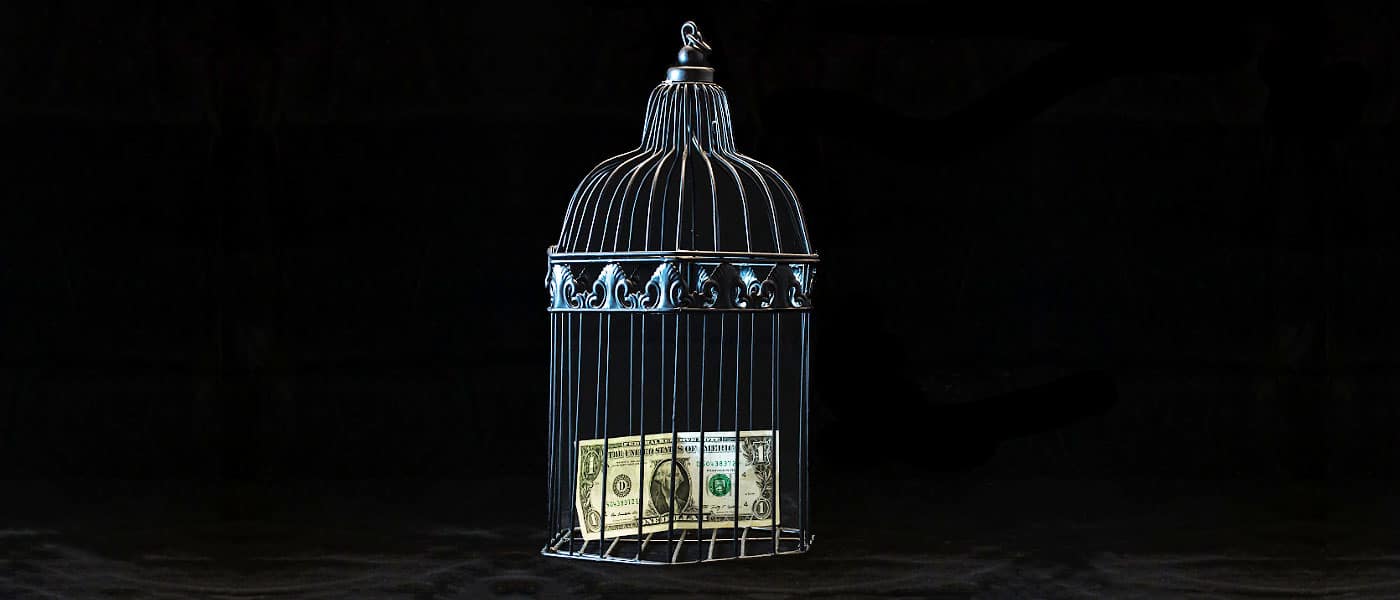
Can you incentivise ethical behaviour?
Opinion + AnalysisBusiness + LeadershipRelationships
BY Fiona Smith 31 MAY 2019
In the wake of the Financial Services Royal Commission, many employers are asking whether they should award bonuses to people who choose to do the right thing.
Boards and CEOs are discussing whether people need an incentive to make ethical decisions and how “ethical incentives” could avoid the risk of encouraging unintended behaviours.
Incentives have a tarnished reputation, with poorly-constructed programs blamed for driving a culture of greed in banks and insurance companies. The international anti-corruption organisation, Transparency International, says performance incentives should not just focus on getting sales, for instance, but also consider how those sales are achieved.
“ … incentive schemes should move beyond mere alignment with values and ethical codes and actively encourage ethical behaviour,” according to the authors of Transparency International’s 2015 report Incentivising Ethics: Managing incentives to encourage good and deter bad behaviour.
“This means that they should not be based solely on financial targets, but should contain non-financial targets that reflect and drive ethical behaviour. Ultimately, this mix of incentives should support the long-term sustainability and success of the company.”
Senior principal advisory at research company Gartner, Arj Bagga, says the Royal Commission has sparked many conversations with his clients, who want to know if they can use ethical behaviour as a measure in the “performance systems” they use to encourage the best work from their people.
A limit on rewards?
Bagga says they can – but within limits. Financial rewards or goods (such as restaurant vouchers) are only effective up to the value of $300, he says.
“Anything over $300 has an incrementally lower benefit on employee performance.”
The reason for this is that financial rewards are an “extrinsic” motivator, meaning that it comes from outside the person, and are much less effective than an “intrinsic” motivator (an inner desire).
“After $300, it starts to extrinsically motivate them too much, whereby they just associate ethical behaviour with financial reward, which is not what you want,” says Bagga.
“You actually want them to be intrinsically-motivated, because, if you remove the reward down the line, because of cost cutting or whatever it might be, employees will then stop acting ethically, just because they’re not being rewarded.
“What we want to do is have a balance between the intrinsic and extrinsic motivation.”
Recognition vs cold hard cash
The most intrinsic powerful motivator is recognition – commending people for their ethical behaviour. Such public recognition can increase employee performance by up to 3 per cent, he says.
However, the effect of that recognition can be supercharged by attaching a financial reward “which we found can increase performance by a further 5 per cent”.
While research has shown that the effectiveness of financial rewards can quickly fade, Bagga says the impact of the small reward can be sustained by using ethical behaviour as a measure in performance reviews.
Because their promotions depend on it, people will continue to try to display the desired behaviours, he says.
Making the right choice
A further question is how to identify ethical behaviour, when it is essentially just doing what would be expected of a decent person. Bagga says managers can reward those instances where people make ethical choices in situations where there is no clear answer.
This could be when, for instance, a salesperson sells a product that earns a lower commission, or no commission, but is a better choice for the customer.
Transparency International, while supporting the use of incentives, points out some of the risks around trying to identify and reward ethical behaviour: the measures are subjective, corrupt employees may be convincing actors, not all ethical acts will be recognised which could cause resentment, and discussion about behaviours may lead to some difficult performance review discussions.
Bagga says ethical behaviour is a good business strategy. If organisations can ensure their people recognise what ethical behaviour is, adopt an ethical mindset and then act upon it, they can increase employee performance by up to 12 percent, he says.
Short term pain, long term gain
Some employers may not be sympathetic to the idea their people forego revenue as they look for the best option for customers. However, Bagga says that view would be myopic.
“It may impact you in the very short term but, longer term, it will actually increase your brand awareness in the marketplace and it will increase your ability to attract talent,” he says.
“In Australia, specifically, ethical behaviour is one of the core reasons a person chooses to join an organisation.”
Australian survey respondents rank “ethics” and “respect for the organisation” higher than manager quality and future career opportunity when they are assessing career paths.
Bagga says that it is not just the financial services companies that are interested in the idea of “incentivising” ethical behaviour.
“I’ve also had conversations with mining companies and telecommunications companies, who are trying to get on the front foot of this and make sure they are bullet proofing themselves against any unethical behaviour that could occur in their organisations because they understand, through the Royal Commission, what the implications of those could be on the performance of their business and the perception of their brand.”
Cashless recognition
- Introducing ethics and values measures into performance reviews
- Good ethical conduct being a prerequisite for promotion.
- Spot awards for good ethical practice, recognising special contributions as they occur, usually over a relatively short-term period.
- Awards for people who speak up or challenge questionable conduct.
- Recognition and/or prizes for people who excel in ethics and compliance training.
- Recognition for outstanding contribution to the ethics and compliance programme.
- A company-wide ethics award scheme.
- Coverage of examples of good ethical or anti-corruption practice in the company newsletter.
- Thank you letters from the CEO or senior managers for people who display ethical behaviour.
- Dinner with the CEO as a prize for people who demonstrate ethical behaviour.
Source: Transparency International
This article was originally written for The Ethics Alliance. The Alliance is a community of organisations sharing insights and learning together, to find a better way of doing business.

This article was originally written for The Ethics Alliance. Find out more about this corporate membership program. Already a member? Log in to the membership portal for more content and tools here.
Ethics in your inbox.
Get the latest inspiration, intelligence, events & more.
By signing up you agree to our privacy policy
You might be interested in…
Opinion + Analysis
Health + Wellbeing, Relationships
Are there any powerful swear words left?
Opinion + Analysis
Relationships, Society + Culture
Those regular folk are the real sickos: The Bachelor, sex and love
Opinion + Analysis
Business + Leadership, Politics + Human Rights
Should corporate Australia have a voice?
Opinion + Analysis
Relationships
On saying “sorry” most readily, when we least need to
BY Fiona Smith
Fiona Smith is a freelance journalist who writes about people, workplaces and social equity. Follow her on Twitter @fionaatwork
How the Canva crew learned to love feedback

How the Canva crew learned to love feedback
Opinion + AnalysisBusiness + LeadershipRelationships
BY The Ethics Alliance 31 MAY 2019
“How am I doing?” is a question that has helped graphic design platform, Canva, to become one of Australia’s most talked-about startups.
In May, the six-year-old company announced it had raised $70 million from US venture capital firm General Catalyst (valuing Canva at $3.6 billion) and acquired two stock photography firms.
Its workplace culture has also received acclaim – with top employer awards from Great Place To Work and LinkedIn last year – and its workforce has at least doubled every year.
In answer to the question above, it seems like Canva is doing very well, thank you.
The practise of asking for feedback is a core part of Canva’s culture and performance strategies. We need to know how we are going so we can improve, however most of us hate the assessment.
New York University research at a major consultancy looked at our aversion to criticism and discovered that people are equally anxious, whether they are giving the feedback or receiving it.
One of the co-authors of the study, psychologist and NeuroLeadership Institute senior scientist, Tessa West, says the best way to develop a “feedback culture” is to train people to ask for it – rather than wait for it to be delivered.
By requesting the assessment of their performance, individuals feel a sense of control and certainty and can steer the discussion where they want. The people giving the feedback will also feel more relaxed, because they no longer have to guess what is wanted from them.
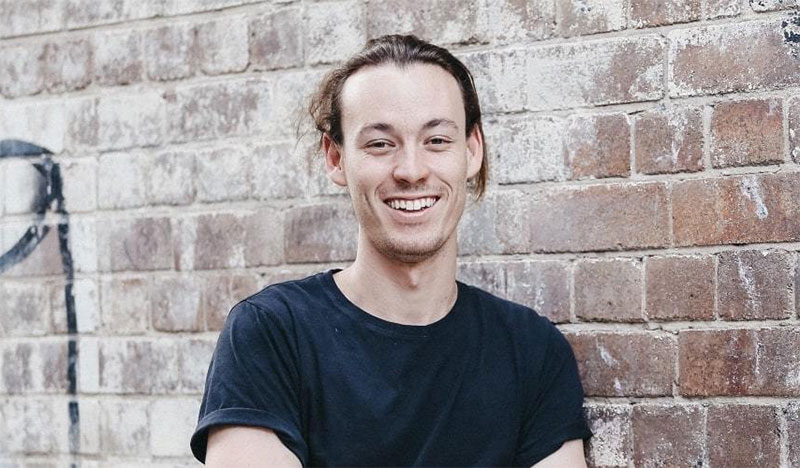
The head of people at Canva, Zach Kitschke, says new hires are introduced to the feedback culture through an “onboarding boot camp”, featuring sessions from the three founders of the company – Melanie Perkins, Cliff Obrecht and Cameron Adams.
“Having a feedback conversation can be challenging and quite tricky, but we have a workshop that everyone goes through to learn how to do feedback and act in a constructive, supportive way,” Kitschke says.
“We have the philosophy that if everyone is constantly asking what they did well, or how they went in the meeting or what could they do better or how could they grow, then people are more open and more ready to hear feedback and people are more likely to give it as well.”
Kitschke has been with Canva for six years, from when it was a small startup with seven people to its present workforce of 600 in three offices in Sydney, Manila and Beijing.
Executive coach, Sarah Nanclares, joined the company as an internal coach last year and writes in a Canva blog: “… asking for feedback is a bit like exercising a muscle: the more you use it, the easier it becomes, and before you know it seeking regular feedback is no longer a scary task. In fact, it becomes welcomed.”
Points of difference
1.Skin in the game: Every employee is given equity options and becomes an owner of the business. Employees get a bonus of $5,000 if they successfully introduce a new hire to the business.
2. The Fix-It form: This form can be used to notify the founders and other senior executives of any problems.
3. Right fit: Recruits are screened for the values: Be a force for good, be a good human, set crazy big goals and make them happen, empower others, pursue excellence, and make complex things simple.
4. Someone to watch over me: Every new person gets paired with a mentor from the same area or discipline. Anyone can receive training to be a mentor.
5. Businesses within the business: Within Canva are 15 groups that function as their own startups, running independently, with the ability to move quickly.
6. Breaking bread: The teams stop for lunch every day and sit together at long tables so that no-one has to eat alone. A chef prepares shared serving plates and anything not eaten at lunch is refrigerated for people to take home for dinner. Ingredients come from a Canva-owned farm and the bar is open all day.
7. Open door: Employees are welcome to bring their dogs and children to work.
This article was originally written for The Ethics Alliance. The Alliance is a community of organisations sharing insights and learning together, to find a better way of doing business.

This article was originally written for The Ethics Alliance. Find out more about this corporate membership program. Already a member? Log in to the membership portal for more content and tools here.
Ethics in your inbox.
Get the latest inspiration, intelligence, events & more.
By signing up you agree to our privacy policy
You might be interested in…
Opinion + Analysis
Business + Leadership
Is it fair to expect Australian banks to reimburse us if we’ve been scammed?
Opinion + Analysis
Business + Leadership, Relationships, Society + Culture
Extending the education pathway
Opinion + Analysis
Politics + Human Rights, Relationships, Society + Culture
Punching up: Who does it serve?
Explainer
Relationships
Ethics Explainer: Negativity bias
BY The Ethics Alliance
The Ethics Alliance is a community of organisations sharing insights and learning together, to find a better way of doing business. The Alliance is an initiative of The Ethics Centre.
What I now know about the ethics of fucking up

What I now know about the ethics of fucking up
Opinion + AnalysisRelationships
BY Alison Hill 28 MAY 2019
We’ve all fucked up before. Big mistakes and small, regrettable misdemeanours.
I have a penchant for saying things that are funny inside my head but come out all wrong. I know I’ve unintentionally offended and hurt people by blurting out the first thing that comes to mind. If I’ve become aware of it, I’ve tried to make amends. But it’s never been big, public or career ending. So, being honest, part of my interest in going along to ‘The Ethics of Fucking Up’ was schadenfreude.
I wanted to hear how Sam Dastyari and Mel Greig, who shared their stories of the ‘Chinese political donor scandal’ and the ‘Royal prank call’ had stuffed up. In truth, I wanted to revel in it just a little, to tell myself that at least it had never been that bad for me. I wanted to identify with Paul McDermott, whose fuck ups had never made the front pages or ruined lives.
I watched the crowd enter the sold-out venue in inner Sydney, thinking that every single one of these people who looked so smart, privileged and self-possessed had done at least one monumentally stupid thing in their lives. Had they come looking for redemption? For confirmation that what they did was okay? Because we all fuck up, whether we’re being naïve and thoughtless or doing something dastardly.
Pizza, wine and dark confessions
So what did I take away from a night that was variously funny, intelligent, shocking and sad, with pizza and wine thrown in for good measure?
It seems the biggest fuck ups come about when there is a combination two things: individuals being encouraged to act without first thinking through their decisions, and institutions not living by an ethical framework – or not having one at all. Add to that the speed at which we act in the tech era and it’s no wonder we’ve hurtled into our present state.
As Sam described it, ‘We’re heading backwards with our morality, with our acceptance and empathy for others, with our responsibility for the planet, while fear, selfishness and xenophobia are controlling our political decisions’.
So despite not being able to condone what he did in the ‘Chinese political donor scandal’, my heart ached for him when he described how, in the midst of the scandal, he lay in bed at 3am alone with his thoughts, realising he was solely responsible for the mess.
Rethinking forgiveness
Nobody deserves this unless they have committed some monstrous crime. I decided that I will accept mea culpas and requests for forgiveness more graciously, in my personal life and by public figures. When somebody shows true remorse, I’ll forgive them, because I’m more aware how we all fuck up from time to time, in big and small ways. It’s only human.
We love to hold individuals to account, especially when they are public figures. Perhaps we should be harder on institutions. Mel Greig told us how the broadcast organisation’s processes and ethical judgements went unquestioned during the ‘Royal prank call’.
To recap: the call to the London hospital caring for the Duchess of Cambridge ended in the suicide of nurse Jacintha Saldanha, who fell for the joke thinking it was the Queen and Prince Charles. A chain of decisions meant the prank call was broadcast in full – although Mel tried to stop this happening.
Yet Mel had to wear all the blame. Her description of the trolling she endured afterwards, which included death threats, made the room go quiet. Tears shone in the eyes of the person next to me. Public shaming, relentlessly negative and disparaging media coverage and the non-stop blast of social media are damaging people like never before. At no time has it been easier to broadcast judgment on individuals, instantly and loudly. But institutions are never made to suffer in the same way. Think banking royal commission.
How would I survive if this happened to me, I wondered?
A call to arms against the trolls
Would I be brave and resilient like Mel, and use the horrible experience to start a conversation to help other people, as she did by starting Troll Free Day? Would I have been strong enough to front up to the inquest into nurse Jacintha Saldanha’s death, look her children in the eye and say sorry? Would I stop looking for scapegoats and accept blame, as Sam did, learning to live with what he called ‘the darkest shit in the world’?
As always, a discussion about ethics goes on long after the lights have been turned off. Listening to this conversation about the ethics of fucking up has encouraged me to start conversations about it with friends and family. I realised we all draw the line about what we will and won’t forgive somewhere different, one of the things that defines our personal ethics.
The crowd drifted into the street to the sounds of Paul Kelly’s I’ve Done All the Dumb Things and Cher’s If I Could Turn Back Time. Neither has ever been on my playlist, but I heard them in a new way. Opening your ears to things you think you already know is good thing.
I’ll certainly go back for The Ethics Centre’s conversations on desire, lying, courage and nudity.
MOST POPULAR
ArticleBeing Human
Putting the ‘identity’ into identity politics
ArticleHEALTH + WELLBEING
Parent planning – we should be allowed to choose our children’s sex
Article
Ethics Explainer: Respect
ArticleBeing Human
Praying for Paris doesn’t make you racist
Ethics Explainer: Ethics of Care

Ethics of care is a feminist approach to ethics. It challenges traditional moral theories as male-centric and problematic to the extent they omit or downplay values and virtues usually culturally associated with women or with roles that are often cast as ‘feminine’.
The best example of this may be seen in how ethics of care differs from two dominant normative moral theories of the 18th and 19th century. The first is deontology, best associated with Immanuel Kant’s ethics. The second is consequentialism, best associated with Jeremy Bentham’s utilitarianism and improved upon by John Stuart Mill.
Each of these moral theories require or encourage the moral agent to be unemotional. Moral decision-making is expected to be rational and logical, with a focus on universal, objective rules. In contrast, ethics of care defends some emotions, such as care or compassion, as moral.
On this view, there isn’t a dichotomy between reason and the emotions, as some emotions can be reasonable, morally appropriate or even helpful in guiding good decisions or actions. Feminist ethics also recognises that rules must be applied in a context, and real life moral decision-making is influenced by the relationships we have with those around us.
Instead of asking the moral decision-maker to be unbiased, the caring moral agent will consider that one’s duty may be greater to those they have particular bonds with, or to others who are powerless rather than powerful.
In a Different Voice
Traditional proponents of feminist care ethics include 20th century theorists Carol Gilligan and Nel Noddings. Gilligan’s influential 1982 book, In a Different Voice, claimed that Sigmund Freud’s theory of psychoanalysis and Lawrence Kohlberg’s theory of moral development were biased and male-oriented.
On these dominant psychological accounts of human development, male development is taken as standard, and female development is often judged as inferior in various ways.
Gilligan argued if women are ‘more emotional’ than men, and pay more attention to relationships rather than rules, this is not a sign of them being less ethical, but, rather, of different values that are equally valuable. While Gilligan may have deemed these differences to be ‘natural’ and associated with sex rather than gender, these differences may well have been socially constructed and therefore the result of upbringing.
How might the ethics of care theorist resolve the classical ‘Heinz’ dilemma: Should a moral agent steal the required medicine he cannot afford to buy to give to his very sick wife, or stick to the rule ‘do not steal’, regardless of the circumstances? A tricky dilemma, to be sure, as there are competing duties here (namely, a positive duty to help those in need as well as a negative duty to avoid stealing).
Arguably, the caring person would place the relationship with one’s spouse above any relationship they may or may not have with the pharmacist, and care or compassion or love would outweigh a rule (or a law) in this case, leading to the conclusion that the right thing to do is to steal the medicine.
It’s worth noting that a utilitarian might also claim a moral agent should steal the medicine because saving the wife’s life is a better outcome than whatever negative consequences may result from stealing. However, the reasoning that leads to this conclusion is based on unemotional weighing of costs and benefits, rather than a consideration of the relationships involved and asking what love might demand.
Writing at the same time as Gilligan, Noddings also defended care as a particular form of moral relationship. She asserted that caring was “ethically basic” to humans and that it can be seen in children’s behaviour. While Noddings does not rule men out from being caring, it is usually women who feature in her examples of caregivers.
Noddings, like Gilligan, prioritises relationships that are between specific individuals in a particular context as the basis for ethical behaviour. This stands in contrast to the idea that morality involves following universal, abstract or purely logical moral rules.
Who cares?
Ethics of care has been influential in areas like education, counselling, nursing and medicine. Yet there have also been feminist criticisms. Some worry that it maintains a sexist stereotype and encourages or assumes women nurture others, even while society fails to value carers as they should.
Noddings and Gilligan both argue against this, saying that the capacity for care is a general human strength, and while it is empowering to acknowledge it as a positive capacity in women, it should be encouraged regardless of gender.
Join us for a timely conversation on the unseen perspectives, ethical dilemmas, and shifting cultural expectations around care – one of the most fundamental aspects of being human. The Ethics of Care is live and online on Thursday 28 August 2025 at 6:30pm. Tickets available here.
Ethics in your inbox.
Get the latest inspiration, intelligence, events & more.
By signing up you agree to our privacy policy
You might be interested in…
Explainer
Relationships
Ethics Explainer: Blame
Opinion + Analysis
Business + Leadership, Relationships
Employee activism is forcing business to adapt quickly
Opinion + Analysis
Relationships
The ANZAC day lie
Opinion + Analysis
Relationships, Science + Technology
We are being saturated by knowledge. How much is too much?
BY Dr Laura D’Olimpio
Dr Laura D’Olimpio is senior lecturer in philosophy of education at the University of Birmingham, UK, and co-edits the Journal of Philosophy in Schools.
The transformative power of praise

The transformative power of praise
Opinion + AnalysisBusiness + LeadershipRelationships
BY Professor Bob Murray 11 MAY 2019
What is it about the legal industry that makes it so depressing? Well, it is not the work – but it could be exhaustion mixed with a lack of control about how much work they can handle and a shortage of appreciation from their bosses.
Psychologist and a scientist in behavioural neurogenetics, Bob Murray, says human beings are designed to work as little as 10 hours per week.
“If we work for more than 10 hours a week, it becomes stress,” he told a recent seminar in Sydney.
While that may seem an extreme position at first glance, it is important to understand what Professor Murray means by “work”.
“Work” is the stuff we do that is a grind. It is, perhaps, the administrative work that takes us away from the tasks that are meaningful or enjoyable.
“Work means not necessarily enjoying yourself, not necessarily relating. Human beings are relationship-forming animals. We are driven to surround ourselves with a network of supportive relationships and we can work hard and long… providing that we do it in the company of other people that we actually like, and that we enjoy the process of doing things with them.
“It’s not a question of how many hours you work. It’s whether you enjoy the process of doing that work. And whether you enjoy the people that you do it with”.
Murray said people come to work to be part of a tribe and to learn.
“So people in law firms are willing to stay there for long hours, providing they’re enjoying the process of learning what they’re doing,” he said.
Murray says 30 percent of all lawyers think about suicide once a year and 40 percent are clinically depressed.
A national survey of almost 1000 lawyers finds that excessive job demands, minimal control over workload and spillover of work commitments into personal life are some of the work-related factors correlated with poorer mental health outcomes.
“Concerns about the structure and culture of legal practice in Australia are also highlighted,” say the authors of the study, Lawyering Stress and Work Culture: An Australian Study, 2012-2013.
He says one relatively simple thing that employers and managers can do is to praise their people. However, only around 5 percent of people get praised once a day.
Praise is powerful because of its effect on the “feel good” chemicals we produce, like dopamine, which helps our brains work faster, smarter, and more creatively.
However, poorly given praise tends to antagonise people. Murray says there are three elements to effective praise:
What: The giver has to be specific about what they are praising. A generic “well-done team” can have the opposite effect.
How: This is the effort or the way someone has gone about something. It is the kind of praise you may give a child who comes last in a race, but stuck it out to the end, gave it their best effort and didn’t let the team down. It is not necessarily tied to success, but encourages and rewards the right behaviours.
Who: This is praise for the relationship. “ I really enjoy working with you. It’s great to have you as part of you of my team.” Murray says this kind of praise is less used in law firms than other kinds – but is the most powerful.

This article was originally written for The Ethics Alliance. Find out more about this corporate membership program. Already a member? Log in to the membership portal for more content and tools here.
Ethics in your inbox.
Get the latest inspiration, intelligence, events & more.
By signing up you agree to our privacy policy
You might be interested in…
Opinion + Analysis
Business + Leadership, Politics + Human Rights
We are on the cusp of a brilliant future, only if we choose to embrace it
Opinion + Analysis
Health + Wellbeing, Relationships
LGBT…Z? The limits of ‘inclusiveness’ in the alphabet rainbow
Big thinker
Politics + Human Rights, Relationships
Big Thinker: Michel Foucault
Opinion + Analysis
Business + Leadership, Relationships

